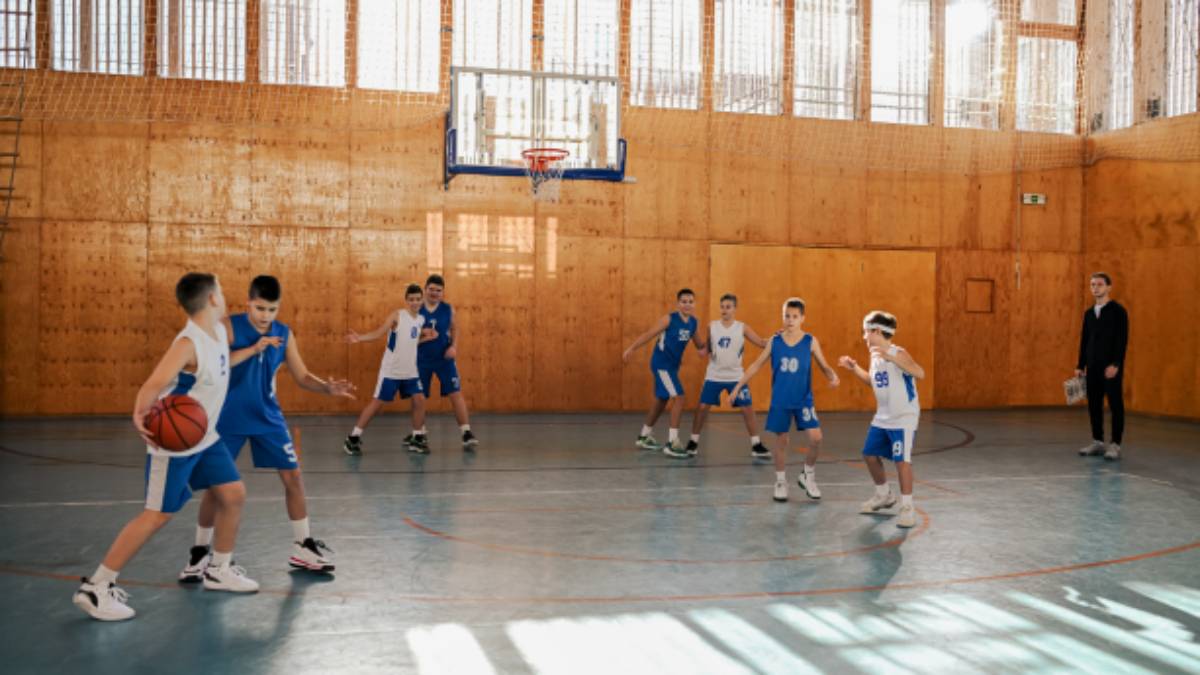Awards and recognition within sports associations as seen by Daniel Fleury

In the dynamic world of civilian sport, the issue of awards and recognition is the subject of much discussion. The exchange “Minor athletes: the pros and cons of trophies and other recognitions”, moderated by Daniel Fleury, a renowned former sports manager who led his school to develop an impressive sports program with 72 teams, explored this theme in depth. This article is intended to provide members of sports associations with a summary of the discussions, highlighting best practices for award management in civilian sport.
Valuing awards
In the context of civilian sport, the proliferation of awards can weaken their symbolic significance. It is essential for members of sports associations to carefully supervise the awarding of distinctions in order to preserve their true significance. Opting for a limited number of awards, carefully chosen and awarded in a balanced manner, ensures that each award retains its status as genuine recognition of excellence and success.
Communicating expectations at the start of the season
A crucial point highlighted at the meeting concerned the vital role of coaches in clearly communicating expectations from the outset of the season, particularly with regard to playing time management. This transparency is an essential lever for inspiring athletes to excel and seize the path to success within the team.
It is also emphasized that key members of sports associations, such as the technical director, have a decisive role to play in ensuring that coaches effectively communicate these expectations and guarantee that parents are also informed. This collaborative approach fosters a shared understanding of objectives and evaluation criteria, helping to create a harmonious sporting environment that supports each participant’s progress.
Versatile rewards strategy
A holistic approach to awards highlights the importance of recognizing the different aspects of the game, from performance to sportsmanship and self-improvement. By distinguishing between elitist and participatory awards, the value of each achievement is highlighted, encouraging all young people to continue their sporting development in a balanced and inclusive way.
Perception and transmission of rewards
The impact of awards depends very much on how they are perceived and communicated. Members of sports associations need to ensure that awards are presented as meaningful testimonials to achievement, reinforcing their value to both athletes and the sporting community as a whole.
The harmful consequences of the quest for recognition
The phenomenon of teams voluntarily choosing to play in weaker categories in order to obtain medals and trophies more easily highlights a fundamental problem in the culture of recognition. This strategy, motivated by the desire for recognition rather than sporting challenge, can not only alter the spirit of competition, but also hinder the authentic development of athletes. By avoiding challenges adapted to their level, teams and athletes deprive themselves of the opportunity to confront opponents who would stimulate their progression. To counter this dynamic, sports associations and federations need to promote a mindset focused on genuine development and the integrity of competition.
Recommendations for sports associations
To foster a balanced and rewarding sporting environment, here are a few recommendations for sports associations:
Establish clear criteria for each award:
- Define precise criteria for each award and ensure that they are understood and communicated effectively to all participants.
- Value excellence in all its forms: Recognize success in areas such as leadership, self-improvement and sportsmanship, in addition to results-based performance.
- Celebrate participation while emphasizing the importance of excellence:
- Encourage active participation while emphasizing the importance of excellence and high-level performance.
- Promote a culture of development: Encourage teams and athletes to take on challenges adapted to their actual level of competence, valuing progression and learning rather than the simple accumulation of easy victories.
- Diversify forms of recognition: Explore ephemeral rewards and non-material forms of recognition that value athletes’ commitment in a more holistic way.
En route to an era of meaningful recognition
In conclusion, this meeting presented by MonClubSportif with expert Daniel Fleury highlights a transition to an era where recognition in minor sport takes on real and inspiring meaning. By following the enlightened recommendations presented, sports associations can play a vital role in creating a sporting environment that values merit, encourages personal development and strengthens cohesion among young athletes. This innovative approach to trophies and recognition promises to shape a generation of athletes driven not only by success, but also by the desire to progress and make a positive contribution to their sporting community.
Don't miss our new guide to organizing sports tournaments!
Karl Demers

On the same subject
The debate between school sports and civilian sports in Quebec was at the heart of the discussion moderated by Daniel Fleury, a former sports […]
In the evolving context of youth sport, the question of awarding trophies and recognitions is the subject of much debate.
In the Quebec sporting landscape, the dynamic between school and civilian sport is a subject of growing importance.


